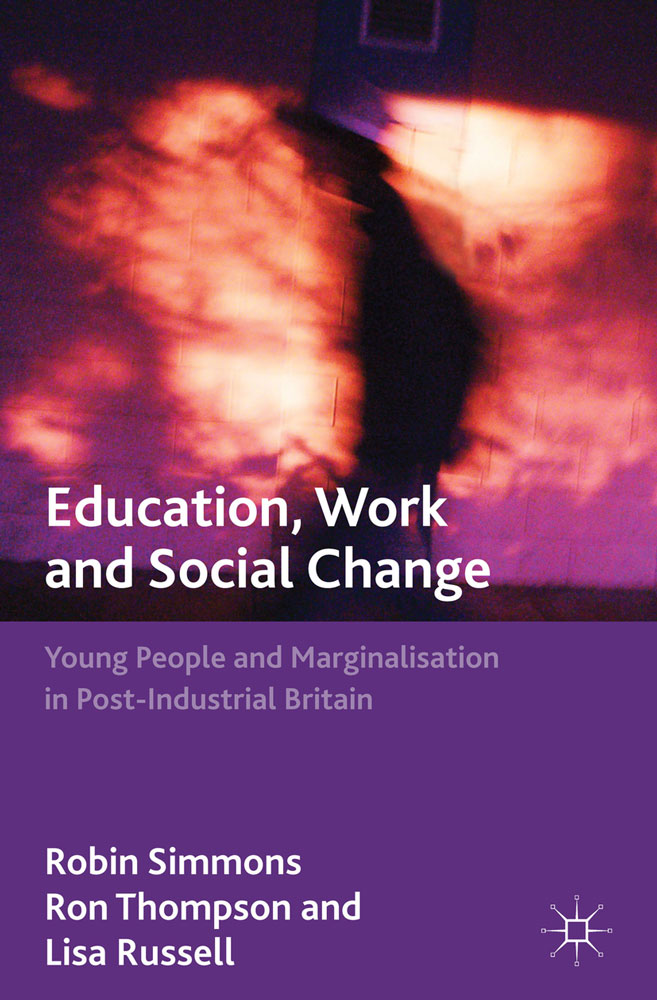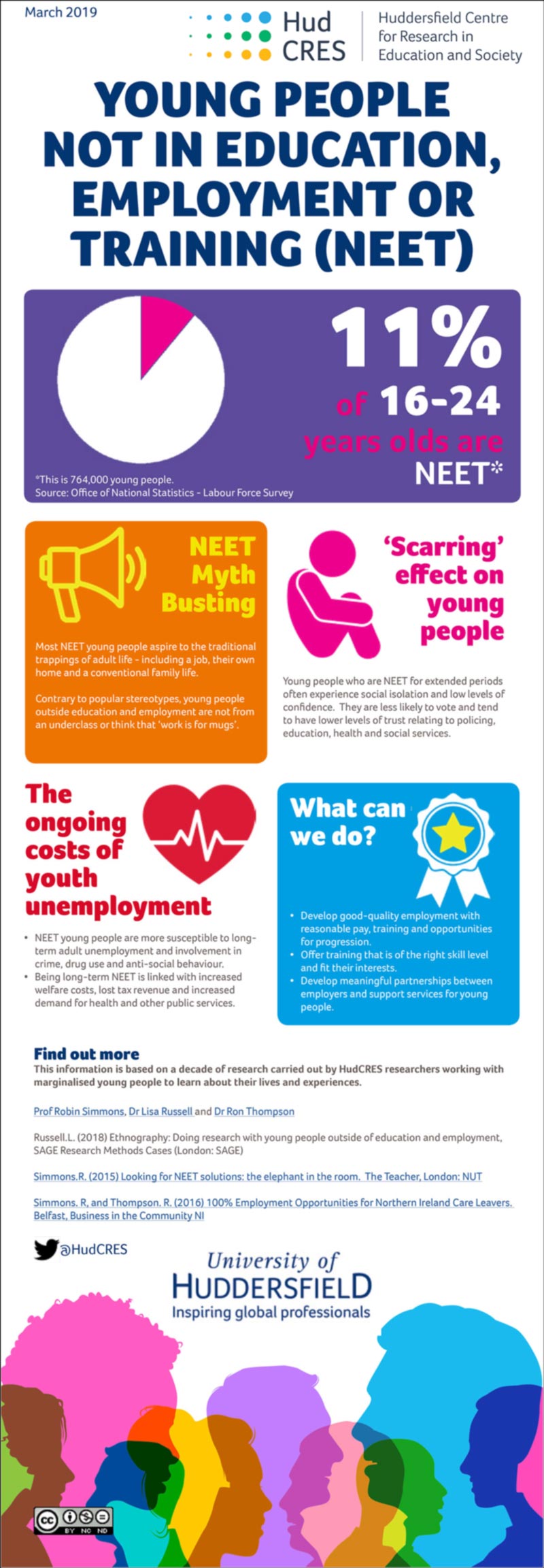
Looking back and going forward: a decade of NEET research

Professor Robin Simmons
HudCRES
For over a decade now, academic staff at the University of Huddersfield have been involved in researching the lives of marginalised young people – especially those classified as NEET (not in education, employment or training) or as vulnerable to becoming NEET.
The research has examined the role of practitioners and the effectiveness of training provision aimed at engaging or re-engaging NEET young people, as well as young people’s experiences on the margins of education and work. It has also made a significant impact – both in academic terms and in the way it has influenced policymakers, practitioners and others concerned with marginalised youth.
Looking back
The origins of the research can be traced back to 2007-2008, when Dr Ron Thompson and I first became interested in ‘employability programmes’ for NEET young people. We were fortunate to obtain a grant from the University Research Fund (URF) to investigate the nature and purpose of this provision. The funding enabled Dr Lisa Russell to be recruited and Lisa has, since that time, become central to NEET research here.
Findings from the URF project were presented in the book, NEET Young People and Training for Work: Learning on the Margins, published by Trentham in 2011, which remains one of the few texts providing an in-depth analysis of employability programmes for marginalised youth.
The findings have also fed into many of the professional training courses we run here at the University, especially those for youth workers, college lecturers and others working with young people on the margins of education and employment.
Ron, Lisa and I have also carried out a series of research projects funded by external bodies including, perhaps most notably, for the Leverhulme Trust and the Joseph Rowntree Foundation (JRF). Both of these projects were highly innovative in using ethnographic methods to follow young people’s day-to-day lived experience of being NEET, and their participation and non-participation in education and employment.
The research for Leverhulme was particularly noteworthy inasmuch as it was a longitudinal study which examined the trajectories of a set of NEET young people over a period of almost three years and included those who had experienced being in care, exclusion from school, homelessness and other barriers to participation. Its findings resulted in a second book, Education, Work and Social Change: Young People and Marginalization in Post-Industrial Britain, published by Palgrave Macmillan in 2014, and a range of research papers which have appeared in leading academic journals, such as Research in Post-Compulsory Education, Oxford Review of Education and the Journal of Youth Studies.
The Leverhulme and JRF projects also led to significant engagement with policymakers and practitioners and the team has, over years, worked with a range of public, private and voluntary-sector bodies concerned with improving opportunities NEET young people.
I appeared as an expert witness for a House of Lords enquiry on youth unemployment and was invited to talk about our research on BBC radio and television. I have given talks about our work in locations as diverse as Ireland, Denmark and Bulgaria – the latter being an invited keynote presentation at a UNICEF conference, The NEET Phenomenon, in Sofia.
Looking forward
The international dimension to our work has continued to grow. Earlier this year, I was invited to take part in an Erasmus+ project which will investigate how vocational education can be used in original and novel ways to help re-engage NEET young people. The project, which runs until 2022, involves researchers from Hungary, Italy, Portugal and Romania, as well as the UK. It promises to be exciting work and includes partners from the public, private and voluntary sectors as well as academia. The intention is to develop forms of pedagogy and new resources, which will help practitioners break down young people’s barriers to education and work.
Closer to home, Lisa and Ron were recently invited by Wavehill Social and Economic Research to collaborate on research commissioned by Blaenau Gwent Council. Here, the aim is to evaluate European Social Fund supported initiatives which aim to improve youth employment and attainment and so, again, there is the potential to make a significant difference going forward.
It will be interesting to see where the next decade takes us!
A NEET infographic
Click on the image to download this NEET infographic for your own use.


